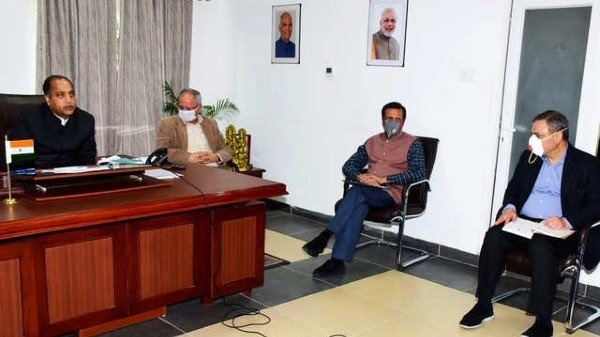CSIR's IGIB, Tata Sons sign in for licensing of KNOW-HOW for accurate diagnosis of COVID-19
Total Views |
New Delhi, May 7: The Council for Scientific and Industrial Research (CSIR), constituent lab Institute of Genomics and Integrative Biology (IGIB) and Tata Sons signed an agreement for licensing of KNOW-HOW for rapid and accurate diagnosis of COVID-19. The license shall include transfer of the knowledge for scaling up the KNOW-HOW in the form of a kit that can be deployed for COVID-19 testing on ground as early as end of this month.

A completely indigenous scientific invention, FNCAS9 Editor Linked Uniform Detection Assay, FELUDA for COVID-19 has been designed for mitigating the ongoing COVID-19 situation and cater to mass testing. While its main advantages are its affordability, relative ease of use and non-dependency on expensive Q-PCR machines, CSIR IGIB and TATA Sons are slated to work together to bring it for widespread use at the earliest.
According to the Director General of CSIR, Dr Shekhar C Mande, CSIR labs such as IGIB have been working on deep science and developing cutting edge technology and he is happy to see that leading Industry TATA Group is partnering towards its deployment. He said, the strong partnership with industry in tackling Covid-19 has been the hallmark of CSIRs strategy in mitigation of Covid1-9.
The Council for Scientific and Industrial Research (CSIR) is a premier organisation under the Ministry of Science and Technology. Commenting on the agreement, President - Infrastructure and Defence and Aerospace of Tata Sons, Banmali Agrawala, said, they are happy to enter into a partnership with IGIB for further development and commercialisation of Clustered Regularly Interspaced Short Palindromic Repeats (CRISPR) based technology for COVID-19 detection.
This innovative CRISPR ‘Feluda’ test uses cutting edge CRISPR technology for detection of genomic sequence of novel coronavirus. It uses a test protocol that is simple to administer and easy to interpret enabling results to be made available to the medical fraternity in relatively lesser time, as compared to other test protocols. He said, they believe that CRISPR is futuristic technology that can also be configured for detection of multiple other pathogens in the future.

